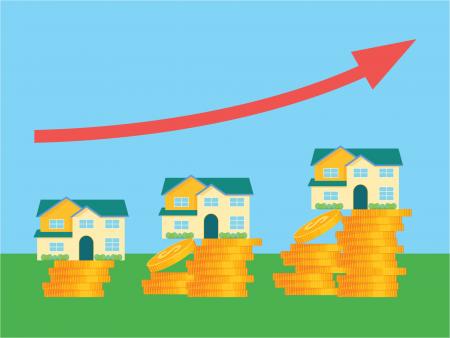7 Things Every First Time Homebuyer Must Know
Buying your first home is a very exciting time! Crunching the numbers to figure out what you can afford is taxing though. If you follow our Neighbor News column, and have taken our advice, you know exactly what you have after bills are paid, your savings squared away, and your rainy day fund supported. But what else do you need to know before buying a house or getting pre-approved for a mortgage? Below, we've put together a list of seven things to know as a first-time homebuyer.
1. Explore Your Options
There are a variety of places you can go for your first mortgage, but many go straight to an online source. Little do they know that online mortgage services are set to specific plan options, so you may not be getting the best rates or repayment plan for your financial situation. There are more than just fixed-rate mortgages or adjustable-rate mortgages. Visit your local branch and let our mortgage specialists determine which mortgage works best for you.
2. Start a House Fund
Start a separate savings account for your home if you don't already have one. It's hard, but economies can be made in many of our active spending habits. Pick one thing you refuse to skimp on – groceries for example – and take a long hard look at the rest of your finances. Every bit helps and it really adds up over time. A good rule of thumb is to have 20% of the house's purchase price saved as a down payment. This helps you avoid private mortgage insurance costs.
3. A Down Payment is Never a Bad Idea
Just because there are zero down options doesn't mean they are going to be the best option for you. In fact, it's highly suggested you put down a down payment. It will help you in securing a stronger mortgage because of the preparation you've done. While 20% down payments are suggested, it does not mean you have to put 20% down. First time homebuyers are currently putting 5%, 7%, 10% down. It all goes back to whatever fits best into your budget but a down payment is helpful. Some mortgages will even let you ESCROW closing cost with lower down payments.
4. Fine Tune Your Budget
You're jumping into a long-term commitment with consistent payments month-after-month, year-after-year. Make sure you take a good hard look at your current monthly bills, any quarterly or annual six-month renewals such as car insurance, and add those to your new homeowner bills. Keep track of everything from your property taxes, to any Homeowner Associations (HOA) fees, and also keep in mind a bigger house means higher utilities. It will take some time before it all feels natural, give it time and keep an eye on things during your first year of homeownership.
5. Home Loan Duration
There are pros and cons to having a short-term loan, just like there are pros and cons to having a long-term loan. Short-term loans will sometimes yield better rates, maybe even a difference of 1.25% (2.25% compared to long-term 3.5%). But with better rates comes higher monthly payments. North Country Savings Bank will work with you to assess which duration loan fits best into your current plan.
6. Pick the Right Location
You've heard the phrase: location, location, location. There's a lot of truth to it. Weigh what is really important to you and what you are willing to settle on to save. Do you want to live within walking distance of town? Which school district do you want your current or future kids placed into? Do you value being close to shopping, entertainment, or a major hospital? These factors, along with others, should be seriously considered.
7. Our Goal is You
When you visit your local North Country Savings Bank branch, our goal is to help you secure the right mortgage. We work with your credit, income, and savings to help propel you closer to securing your dream home. We'll walk you through the entire home buying process. Don't worry, we've got you.
Contact one of our mortgage specialists to help you determine what is best for your first-time home buying process.









